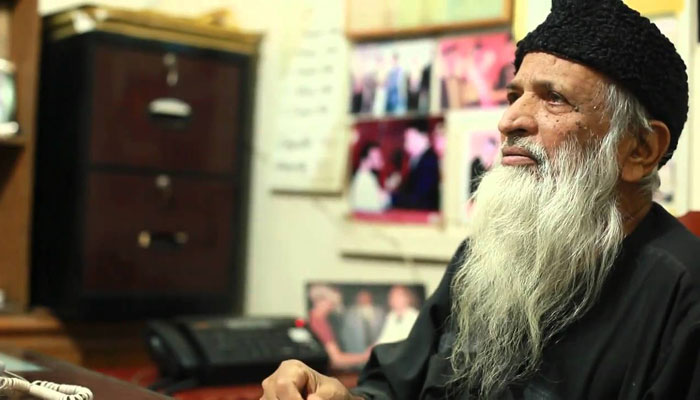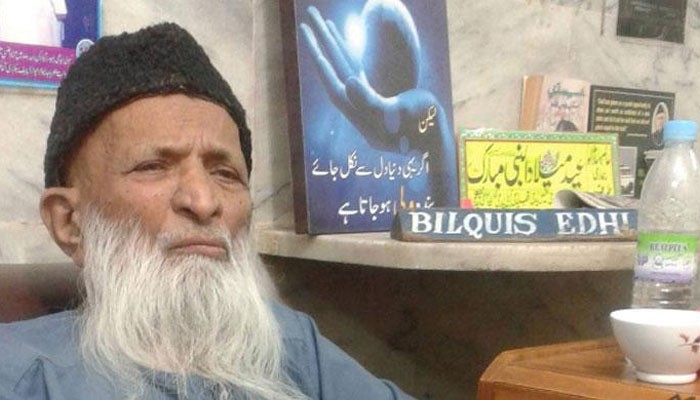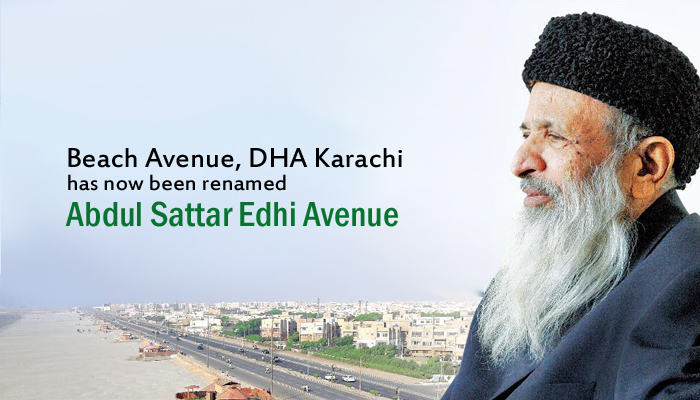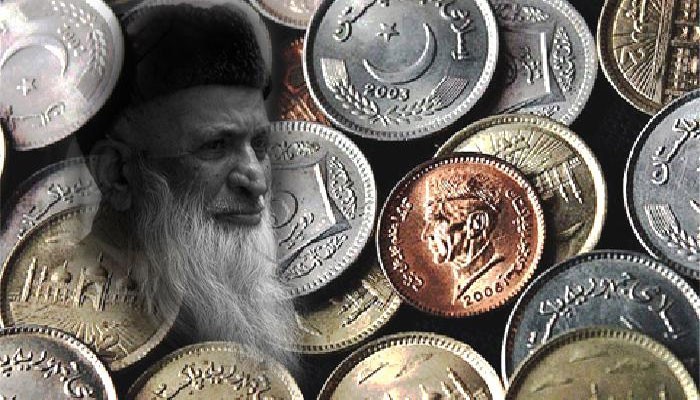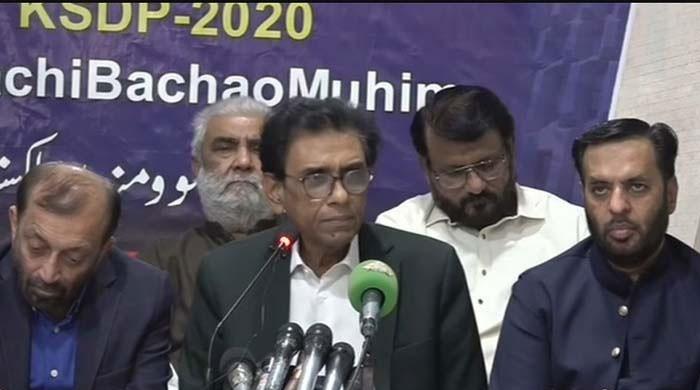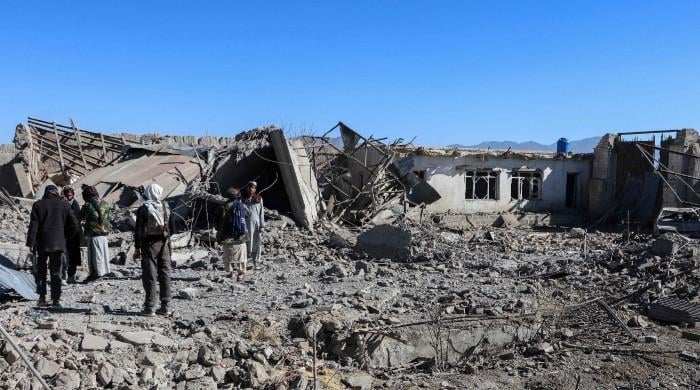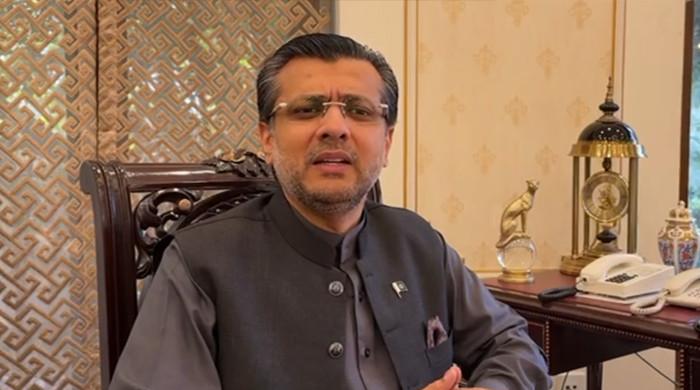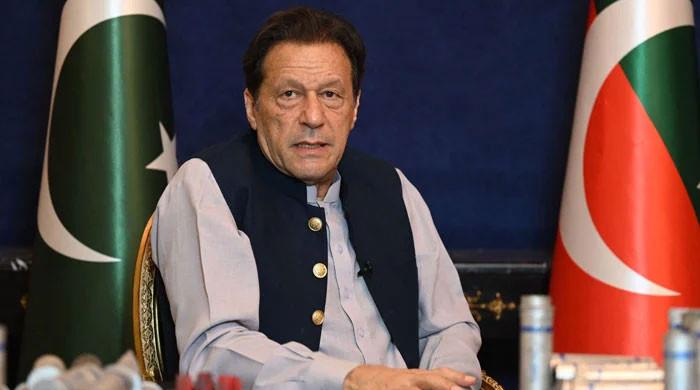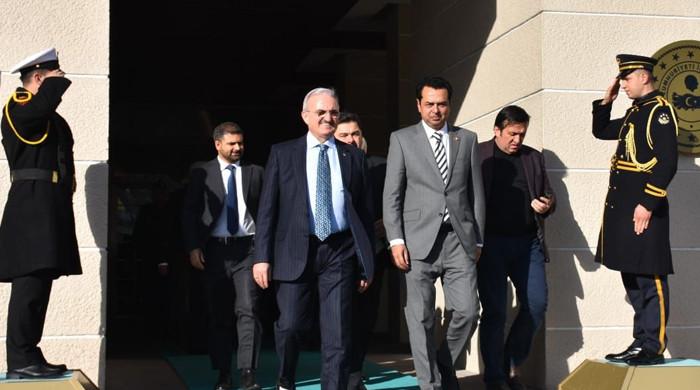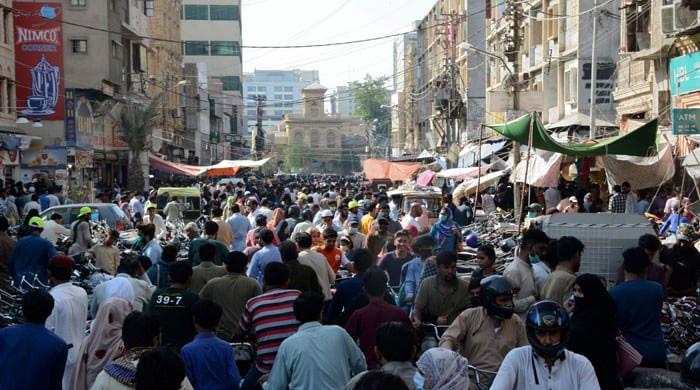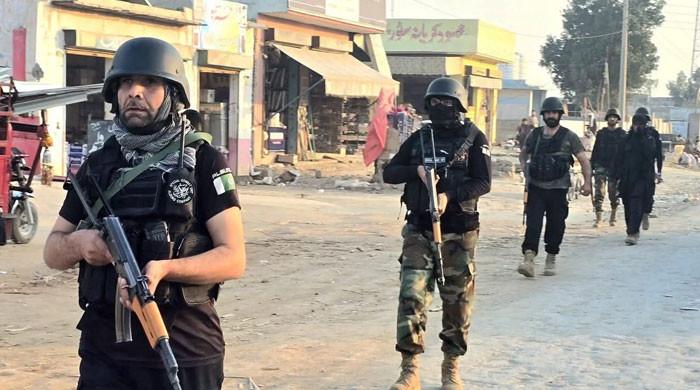Remembering the voice of poor – philanthropist Abdul Sattar Edhi
The founder and chairman of the Edhi Foundation was diagnosed with kidney failure three years before his death but was unable to receive a transplant due to his worsening health
July 08, 2017
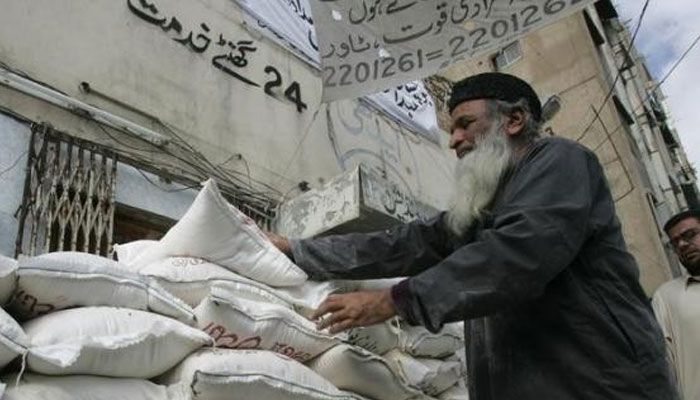
KARACHI: It has been a year since Pakistan's renowned and respected humanitarian Abdul Sattar Edhi passed away on July 8, 2016, at the age of 88, bringing the nation to tears over the loss of one of its most precious assets.
Edhi suffered primarily from kidney problems, among other diseases including diabetes. His funeral was attended by hundreds of people in Karachi’s National Stadium.
Following the celebrated philanthropist’s death, the state and Sindh government had announced one- and three-day mourning periods, respectively. The federal government also posthumously awarded Nishan-e-Imtiaz to Edhi.
During this period, Pakistan’s flag was flown at half-mast.
Edhi is survived by four children and his wife Bilquis Edhi, who ran the Edhi foundation with him.
The beginnings
Born on February 28, 1928, in Bantva city of India’s Gujrat state, Edhi’s humble beginning was when he started to take care of his ailing, diabetic mother at the age of 11, helping him learn to prioritise others over his own self.
Post independence, his family migrated to and settled in Karachi. In 1951, the philanthropist purchased a small shop with his meagre savings to open a dispensary with the help of a doctor friend. From thereon began his simple life as he often slept on the bench in front of the shop to help anyone in need of urgent medical care.
1957 brought a flu epidemic to Karachi, in response to which Edhi set up emergency tents for medical attention throughout the city. Donations from the public started pouring in and Edhi, through those funds, bought the entire building wherein the dispensary was situated.
He subsequently set up a maternity ward inside the newly-purchased building, alongside a training school for the nurses. This was the start of Edhi Foundation.
In an interview with Geo News, Edhi said he only owned two pairs of clothes that he washed by himself – a tradition he had continued for many years. He used to live in a small one-room flat located above the office of his charitable organisation.
“He never established a home for his own children,” his wife told news agency AFP in an earlier interview.
Last days
The founder and chairman of the Edhi Foundation was diagnosed with kidney failure three years before his death but was unable to receive a transplant due to his worsening health. He was brought to the Sindh Institute of Urology and Transplantation (SIUT) for a regular dialysis just before his death but was shifted to intensive care and put on a ventilator due to severe breathing problems.
Edhi also suffered from multiple diseases and complications, including diabetes, hypertension, and kidney failure. Faisal Edhi – his son – told reporters that he had also become very weak, physically, because he was unable to eat for some time.
As the last act of selflessness, his son said Edhi wished for all his usable body organs to be donated after death. "He had prepared for himself a grave in Edhi village about twenty-five years ago," he said. "Also, he wanted to be buried in the same clothes in which he died. Hence, we will honour his wish and bury him in the clothes that he passed away," he added.
Faisal Edhi noted that “only his eyes can be donated” since he was not in a good condition at the time of his death. An operation was conducted to extract Edhi’s cornea for donation, which benefitted two people.
Frail and weak in his later years, Edhi appointed his son as the managing trustee in early 2016. "I have done a lot of work. I am satisfied with my life," he told news agency AFP.
Awards and accolades
Motivated by a spiritual quest for justice, Edhi and his team over the years aimed helped those who could not help themselves and picked up where limited government-run services fell short.
The most prominent symbols of the foundation – its 1,500 ambulances – are deployed with unusual efficiency to the scene of terrorist attacks that tear through Pakistan with devastating regularity. His work was so widely respected by across Pakistan that armed groups and bandits were known to spare his ambulances.
Revered as a national hero of nearly legendary status, he established his welfare organisation almost six decades ago; Edhi Foundation owns and runs Pakistan's largest ambulance service, as well as nursing homes, orphanages, clinics, maternity wards, morgues, homes for the elderly, women's shelters, rehabilitation centers, and soup kitchens across the country.
Edhi received a number of international honours, such as Pakistan's Nishan-e-Imtiaz, the Ramon Magsaysay Award, the Lenin Peace Prize, and the Balzan Prize, among several other international honours for his humanitarian work.
In 2011, the then-Prime Minister Yousuf Raza Gilani proposed Edhi's name for the Nobel Peace Prize. He appeared on the Nobel list again later after being nominated by young Pakistani Nobel laureate Malala Yousafzai.
The Beach Avenue on Seaview in Karachi’s DHA Phase VIII was renamed as Abdul Sattar Avenue in recognition of his legendary services to the humanity, the executive board of DHA announced in July 2016.
The renamed road is the most popular ones in the metropolis and is frequented by Karachiites as well as the tourists coming to visit the sea.
Search engine Google honoured the Pakistan’s “angel of mercy, Abdul Sattar Edhi, on his 89th birth anniversary” on February 27, this year. It changed its logo in the United States, Iceland, Portugal, Australia, New Zealand, Japan, Estonia, UK, Denmark, Ireland, and Pakistan to an illustration of the humanitarian.
“[After moving to Karachi, Edhi], soon noticed that many Pakistanis lacked medicine, education, and other essentials, and he made it his life's mission to help others. In 1951, he established the Edhi Foundation, which is funded solely by private donations,” reads Google’s description of Edhi.
“In celebration of Abdul Sattar Edhi, let's all lend a hand to someone in need today,” it added.
The State Bank of Pakistan (SBP) in March 2017 issued a Rs. 50 commemorative coin to commemorate the services of Edhi. The bank said it made its decision keeping in view the meritorious services he rendered for humanity in general and, in particular, Pakistanis.
These coins were issued through the exchange counters of SBP Banking Services Corporation’s field offices on March 31, 2017, read the statement. Below the Crescent and at the top of two springs of wheat with arms curved upward, the coin notes the year of Abdul Sattar Edhi’s death.
Then, in April 2017, a school in Lyari Town’s Gulistan Colony was named after Abdul Sattar Edhi to pay homage to the famous philanthropist. Formerly known as DMC Girls and Boys Secondary School, the institution is now known as Abdul Sattar Edhi School.
In the ceremony to rename the school, its students paid a tribute to Edhi and showcased different aspects of his life. His son and his wife were the chief guests for the occasion and announced a plan to open a science laboratory at the school.
